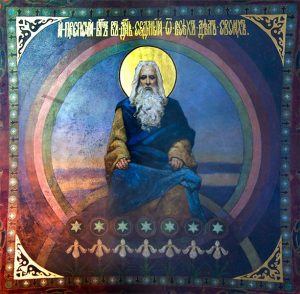Genesis 22:1-14
This text is used for the Lectionary Year A on July 2, 2017.
 “God Will Provide”
“God Will Provide”
Life is a promising and dangerous adventure. The stakes are high. Participation is not optional. Everyone has to decide and act on the decisions made. We all have to figure it out. So we ask, “God, how can we successfully live out this adventure of life on earth?”. And it is as though God says, “Glad you asked. Because I will provide what you need when you need it.” Patience is trusting in God’s timing. And a life well lived requires well-placed trust.
The drama of Abraham & Isaac at Mt. Moriah revealed this drama in a troubling fashion. Why would God, whom we believe is loving, good, and trustworthy – ask for the human sacrifice of Abraham’s beloved son? Or for that matter any human sacrifice? What we find is that nowhere else in Scripture does God ask anyone else to offer a human sacrifice. So the bigness of this passage includes a major teaching that shaped the rest of Scripture and informs our life today. God’s goodness is what we can trust in when the options of our circumstances don’t indicate that we have any good options. Let’s pay attention to the story and let the meaning show us the way forward.
Spiritual Map Making
Abraham & Sarah and Isaac were spiritual mapmakers. That is, they followed God’s leadership into faith territory not previously understood or traveled. By their obedience to God’s call, and by God’s grace which forgave their failures – they became the leaders in God’s faith movement. (Known as Patriarchs and Matriarch of faith.) Their story is frequently referred to in the Old and New Testaments. They define how to live the meaning of faith as defined in Hebrews 11:1, “Faith is the substance of things hoped for and the evidence of things not seen.’



